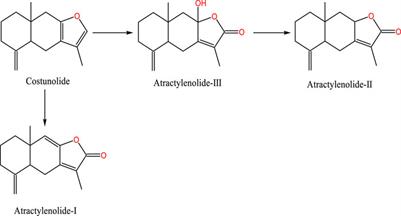Molecular Targets Associated with Ulcerative Colitis and the Benefits of Atractylenolides-Based Therapy
Ulcerative colitis (UC) is a chronic inflammatory disease of the intestines that can significantly impact quality of life and lead to various complications.

Currently, 5-aminosalicylic acid derivatives, corticosteroids, immunosuppressants, and biologics are the major treatment strategies for UC, but their limitations have raised concerns. Atractylenolides (ATs), sesquiterpene metabolites found in Atractylodes macrocephala Koidz., have shown promising effects in treating UC by exerting immune barrier modulation, alleviating oxidative stress, gut microbiota regulation, improving mitochondrial dysfunction and repairing the intestinal barrier. Furthermore, ATs have been shown to possess remarkable anti-fibrosis, anti-thrombus, anti-angiogenesis and anti-cancer.
These findings suggest that ATs hold important potential in treating UC and its complications.
Therefore, this review systematically summarizes the efficacy and potential mechanisms of ATs in treating UC and its complications, providing the latest insights for further research and clinical applications.
Read the full article at the original website
References:
